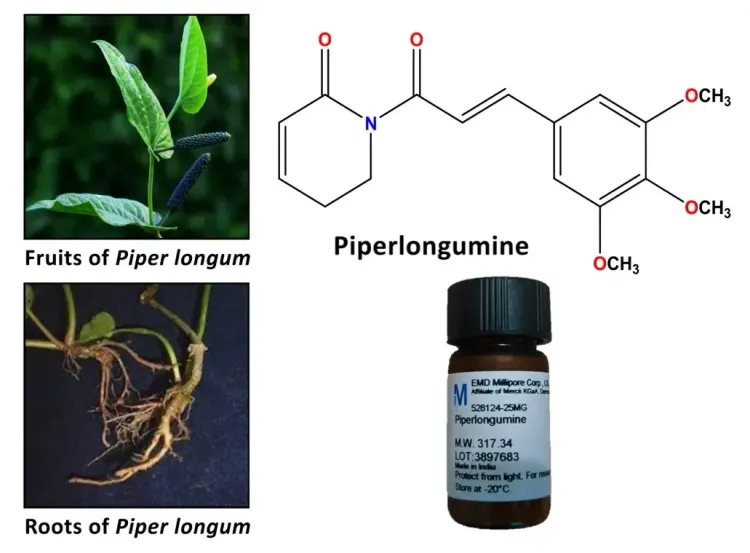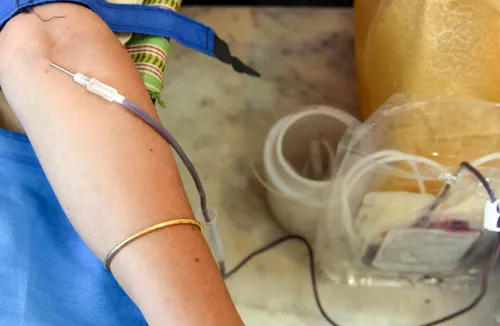Can Long Pepper's Compound Help Combat Colon Cancer?

Synopsis
Key Takeaways
- Piperlongumine from long pepper shows potential as an alternative treatment for colon cancer.
- It selectively targets cancer cells while preserving healthy cells.
- The compound increases oxidative stress in cancer cells, leading to their self-destruction.
- This research could provide affordable treatment options for low and middle-income countries.
- Future studies will explore its use alongside conventional chemotherapy.
New Delhi, Nov 25 (NationPress) Researchers at the National Institute of Technology (NIT) Rourkela have discovered that a natural compound derived from long pepper may serve as an effective and affordable treatment option for colon cancer cells.
Colon cancer is characterized by the uncontrolled growth of cells in the large intestine, leading to tumor formation. It ranks among the most prevalent cancers worldwide, with the World Health Organization reporting approximately 1.9 million new cases and nearly 900,000 fatalities attributed to this disease in 2022.
While numerous international studies have explored the effects of natural molecules on various cancers, the team at NIT Rourkela conducted laboratory experiments to showcase the efficacy of Piperlongumine, a natural compound, as a potential alternative to traditional chemotherapy.
Conventional treatments like chemotherapy often entail painful side effects, such as hair loss, fatigue, nerve damage, and compromised immunity.
Additionally, cancer cells can develop resistance to chemotherapy, complicating treatment.
The findings, published in the esteemed journal BioFactors, indicated that Piperlongumine selectively targets and kills colon cancer cells while sparing healthy cells.
“This natural compound from long pepper has demonstrated significant anticancer effects with minimal side effects, positioning it as a promising and safer alternative therapy. Many cancer patients eventually cease to respond to chemotherapy, increasing mortality risk,” stated Prof. Bijesh Kumar Biswal, Associate Professor in the Department of Life Science at NIT Rourkela.
The research team utilized multiple assays, including MTT assay, apoptotic induction, nuclear damage, and mitochondrial dysfunction, to assess the viability of colon cancer cells post-treatment with piperlongumine. The results indicated significant cancer cell death.
Moreover, they found that Piperlongumine elevates oxidative stress within colon cancer cells beyond their capacity to cope, leading to self-destruction. Conversely, normal cells remain unaffected due to their ability to manage this stress.
Given that long pepper (known as pippali/thippili/maghaun) is a low-cost, easily cultivated plant commonly found in the diets of many Indians, the development of piperlongumine offers a viable, cost-effective, green therapeutic option, particularly advantageous for low and middle-income countries grappling with exorbitant cancer treatment costs, the team highlighted.
“Moving forward, our team is exploring the potential of piperlongumine in conjunction with chemotherapeutic agents like oxaliplatin to help restore patient responsiveness to treatment. This discovery paves the way for new approaches to treating advanced and chemotherapy-resistant colorectal cancer, where current options are scarce,” added Biswal.










